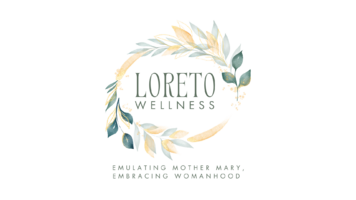
When most people hear the word birth trauma, they picture a dramatic medical emergency or something that went horribly wrong, but birth trauma isn’t always loud or obvious.
Sometimes, it’s silent.
It’s the mom who says, “I’m fine,” but feels tense every time she hears a baby cry.
It’s the woman who can’t relax during her child’s checkups but doesn’t know why.
It’s the mom who did “everything right,” yet still carries a weight she can’t explain.
If you’ve ever felt that something shifted in you after birth, physically, emotionally, or spiritually, this post is for you. If you want to listen to the episode, check it out!
What Birth Trauma Really Is
Birth trauma isn’t defined by what happened on paper. It’s defined by how your body and mind experienced it. It's all relative so there isn't a one size fits all definition.
Even a “normal” or medically uncomplicated birth can leave an imprint if, at any moment, your body felt unsafe, powerless, or unheard.
It could mean that your labor moved too fast, or decisions were made without your consent, or you felt exposed, dismissed, or like your body wasn’t your own.
Those moments don’t just disappear. Your nervous system remembers and unless you're intention about healing it, it stays stuck..
The Physical Signs of Birth Trauma
One of the most misunderstood parts of birth trauma is that it often shows up in your body first.
You might notice:
-
Tightness in your neck, shoulders, or jaw that won’t go away
-
Digestive issues, headaches, or pelvic pain
-
Feeling like your body is “on edge” for no reason
-
Panic or nausea triggered by medical settings or memories of labor
Your body is wise. When something overwhelms your system, it holds on to the experience for protection, but over time, that protection becomes restriction and it keeps you living in survival mode, unable to fully relax or feel safe.
For high-performing women, this can be especially hard to recognize. You’ve learned how to push through. You’re the one who gets things done, who holds it all together. But, when the body is constantly on high alert, it eventually starts whispering, through tension, exhaustion, or burnout, that something deeper needs your attention.
The Emotional and Mental Impact
Even when the physical healing is “complete,” the emotional healing often isn’t.
You might notice:
-
Perfectionism, guilt, or shame that feel heavier than before
-
Anxiety, irritability, or disconnection that doesn’t seem to have a cause
-
Difficulty trusting your instincts or feeling confident in your decisions
-
A constant sense that you’re failing, even when you’re not
Iit’s literally your nervous system still trying to make sense of an experience that felt too big at the time.
If you’re used to functioning at a high level, whether in your career, your home, or your faith, this can feel frustrating. You know you’re capable, but you also feel like there’s an invisible weight holding you back.
How Birth Trauma Affects Relationships
Birth doesn’t just affect you!! It affects how you relate to everyone around you.
You’ve noticed yourself over-controlling, micromanaging, or struggling to trust others with your baby. Or maybe the opposite: you’ve withdrawn, numbed out, or feel disconnected from your spouse or child.
You feel pressure to be the “perfect mom,” always calm, always grateful, but inside, you’re tired.
Not just physically tired, but soul-tired.
Unhealed birth trauma can quietly erode joy, intimacy, and peace -creating invisible walls between you and the people you love most.
A Story of Quiet Survival
I once worked with a woman named Sarah (name changed for privacy).
Her birth was “fine.” No emergencies, no drama. Months later, she couldn’t shake this constant feeling of tension in her chest. She said, “It’s like I’m waiting for something bad to happen.”
She was a successful entrepreneur and her shop was doing super well, she was deeply faithful, and doing everything “right", but underneath, her body was still in survival mode from her birth.
As we worked together, she realized how much her birth had shaped the way she approached life—guarded, alert, always bracing for something. Once she began releasing the stored trauma and calming her nervous system, she noticed something amazing:
Her body softened. Her mind slowed down. Her patience returned. Her husband even said, “You’re smiling again.” She even went on to have two more babies (so far ;))
That’s what healing does..it gives you you back.
The Ripple Effect on Your Family
When you heal, your children benefit. Your peace becomes their safety. Your calm becomes their model for emotional regulation.
Whether your birth was traumatic or not, healing your relationship with your body and story is one of the most powerful gifts you can give your family. Children don’t just learn from what we say; they learn from the energy we live in.
The beautiful truth is: you can heal.
Healing doesn’t mean rewriting the past, but it means teaching your body that it’s safe now. It means processing what happened with compassion, and inviting God into the spaces that felt too dark or painful before. When you do, your entire life opens up- your relationships, your faith, your joy, and your sense of wholeness.
Take the First Step!
If anything in this post resonated with you, whether you know your birth was traumatic or you’re just realizing how much it shaped you, this is your invitation to take the next step.
Let’s talk about your birth story and let's explore how it’s showing up in your life today.
Book a discovery call with me and take the first step toward reclaiming your peace, your confidence, and your connection with the woman God designed you to be.
Healing your birth story doesn’t just change you; it changes everything.

Comments